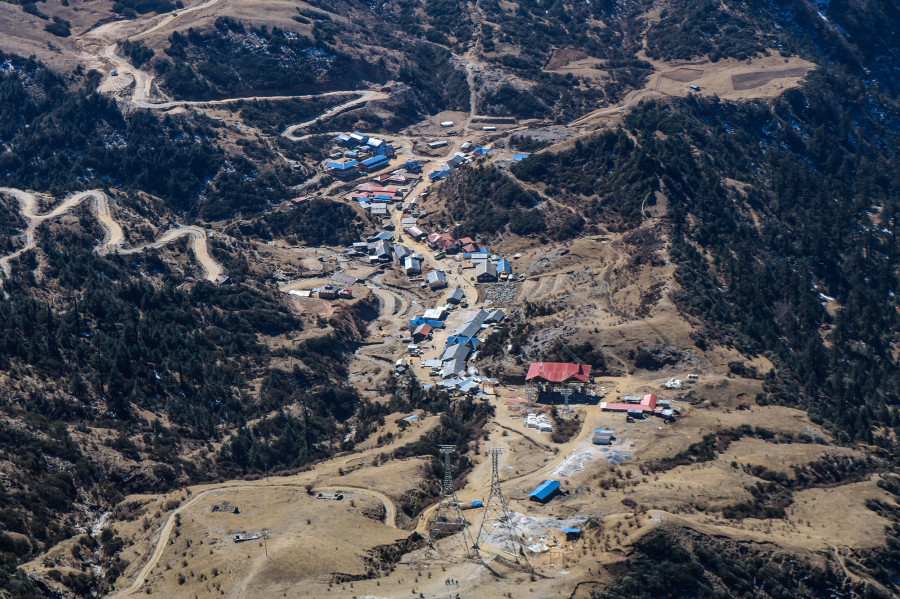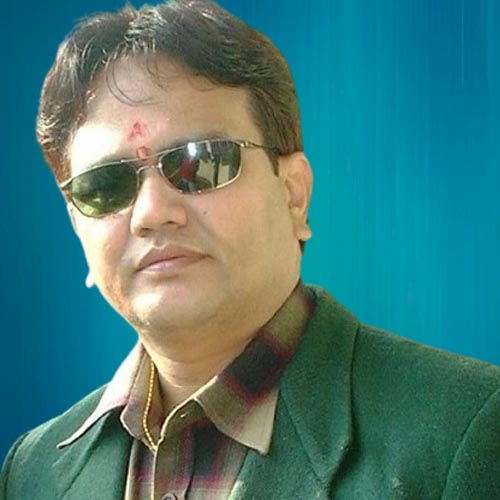Fiction Park
The hero
Kamal, who had gone to the US for his higher studies, has come back home. Now he is determined to make it a better place.
LB Thapa
Kamal was thrilled and so were his parents. He had just received his student visa for the US. His entire family was in a celebratory mood, and an exuberant Kamal was busy on his phone, receiving calls from relatives and friends congratulating him. His social media accounts were flooded with congratulatory messages. Kamal was now one step closer to making his dream of earning a degree from the US a reality.
He had harboured the dream to study abroad for many years, and the US was his prefered country. Many of his friends were already in the US studying, and some of them were doing extremely well. Kamal belonged to a middle-class family. His father, Gunakar, had worked for Nepal Electricity Authority for more than 20 years.
At Tribhuvan International Airport, Gunakar gave his parting words to his son, “Study well. What we want from you is a Master’s degree from the US,” Kamal nodded in affirmation.
Kamal studied well and completed his undergraduate from Wichita State University, Kansas, USA. He called his parents to attend the convocation ceremony, but his father refused. He said that he would come to attend once Kamal completes his Master’s degree. When Shreya, Kamal’s mother, asked her husband why he refused to attend the convocation ceremony, Gunakar said, “Many students turn their back to higher education after undergraduate. I do not want our son to do the same! Now pressure will mount on him to complete his Master’s degree. Don’t worry; we will go to attend the convocation programme when he completes his Master’s degree.”
Kamal had always been an inquisitive student. He was sincere, obedient and always curious. Remembering his father’s words, he continued to work hard. Soon, he passed all his examinations with flying colours and successfully completed his Master’s degree in mechanical engineering with distinction. He called his parents to attend the convocation ceremony programme. This time Gunakar and Shreya gladly accepted their son’s invitation. The moment the degree was awarded to Kamal, Gunakar and Shreya’s tears welled up in their eyes.
Kamal and his parents spent a week in Wichita. During their stay, Kamal took them sightseeing all around the city. As soon as his parent’s left for Nepal, Kamal, without wasting any time, joined a PhD programme. He continued his research, and after about four years, Kamal submitted his PhD dissertation. The head of the research department of the university went through his thesis and found the work excellent. Kamal was awarded a PhD degree, and it was yet another feather of success in his cap.
For some years, Kamal taught in Newman University, Kansas. Then one day he decided to leave the US and return to Nepal. An urge to serve his motherland had inspired him to return. Many Nepali friends suggested Kamal not to give up his well-paying job in the US.
“Don’t be so imprudent. There is nothing that you can do in Nepal. The job you hold here in the US is highly prestigious and you cannot get a job better than this in Nepal. Do not let your heart rule over your mind,” advised his friends. However, Kamal remained firm in his decision to travel to Nepal.
One fine morning Gunakar and his wife were taken aback when they saw Kamal at their doorstep. Kamal had not informed his parents about his homecoming. However, Shreya was more than happy to find her son at home. “Now you should find a job here in Nepal. Don’t go back to Amrika,” suggested Shreya.
“It is not Amrika, Aama; it is America,” corrected Kamal and laughed. “You are right, Aama. I will not go back to America. I will do something in my own country.”
Meanwhile, Gunakar looked indifferent at his son’s new decision.
“Do what you enjoy. I will never interfere in your matters,” remarked Gunakar nonchalantly.
“I want to see my country first,” said Kamal to himself, and one day he embarked on his journey to travel across the country in the hopes to get a better understanding of the country.
He travelled for almost a year. During this time, he travelled to remote areas of the country, mostly on foot. There, he met fellow countrymen who lived in abject poverty, with a scarcity of basics, and saw many suffering from severe malnutrition.
Many children were deprived of their fundamental rights. In many of the places he travelled to, he saw that there were no medical facilities, and people died from even very curable diseases. Since there were no health workers, people had no option but to rely on local shamans, many of whom made things worse.
After having seen the utter poverty and helplessness of the people, Kamal decided to take an important decision.
“I will devote my life to helping these people stand on their own feet. Waiting for the government to do something will only mean prolonging their depravity, and I must take it upon myself to do something,” said Kamal to himself. He then started working on a mission of making rural people self-dependent. He then travelled to Kalikot district in Karnali region, and one of the first things he did was give a speech to the locals of a small village. “My dear countrymen,” Kamal began his speech. “You call yourselves poor, and for your poverty, you blame the government. I want to tell you that you should not expect anything from the government. Our government is not only blind but also deaf. It’s foolish to expect anything from a government that turns a blind eye to the plights of the poor! Let’s change our lives with our own efforts. Let’s be creative. Let’s use the abundantly available natural resources.”
The villagers were motivated.
Kamal invited skilled senior members of the village and asked them to make various handicraft items from locally available materials. Kamal used his own hard-earned money to build a cultural hall and asked the local people to practice cultural dances and folk songs. He wanted a regular cultural show to be performed in the village. He gathered local villagers and pitched an idea of setting up homestay in the village. Everyone agreed to it. Kamal then gave English language classes to villagers so they could communicate with foreigners.
Kamal also assembled a team to make documentaries and travel videos that highlighted the region’s rich culture, tradition and natural beauty. He then uploaded the videos on YouTube and shared them widely on other online platforms. Soon, tourists began arriving in the village. With the money generated from tourism, the village set up a health post and a school.
The villagers regarded Kamal as their ‘Hero’. One day, to everyone’s surprise, Kamal disappeared. They searched for him in the entire village and beyond but failed to find him.
The people of Kalikot were at their wit’s end. But what they didn’t know was Kamal was already on his way to another remote village to replicate what he had managed to do. He still had dozens of other villages on his list and thousands of lives to improve. Kamal had found the meaning of life in the happiness of others.




 9.7°C Kathmandu
9.7°C Kathmandu










